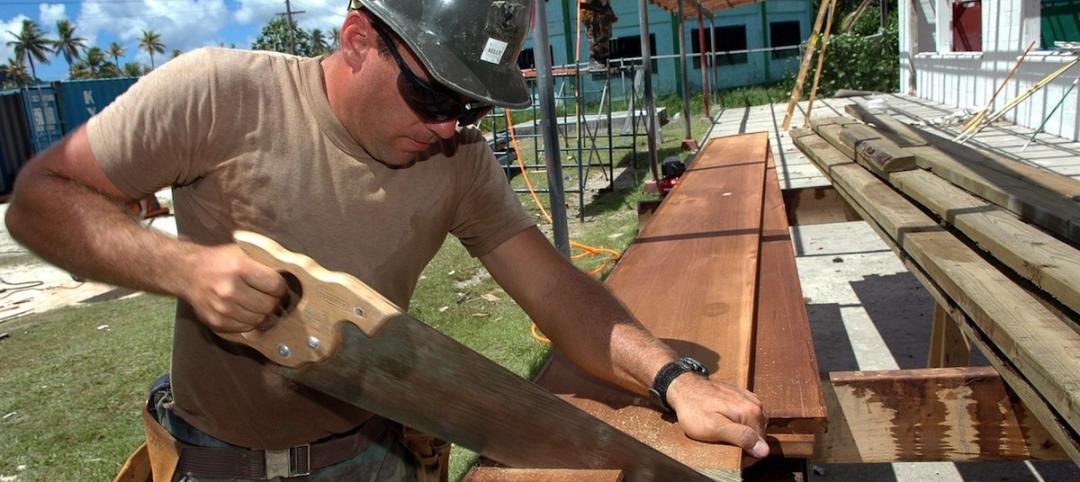The Design-Build Institute of America (DBIA) has released what it claims to be the first and only full set of warranty bonds, proposal bonds, and payment and performance bonds that are specifically crafted for design-build projects.
A task force within the Washington-based DBIA, chaired by G. William Quatman, the general counsel for Burns and McDonnell, worked over the past year on forms that are tailored to this sector. The coauthors of the forms include designers and builders. The National Association of Surety Bond Producers and the Surety & Fidelity Association of America have endorsed the documents.
The new family of bond forms includes a Proposal Bond (610), a Warranty Bond (615), and three sets of Payment and Performance Bonds for Design-Builders (620 and 625), Contractors (640 and 645), and Subcontractors (630 and 635).
“Mirroring the design-build philosophy, DBIA’s family of contract documents is reflective of our diverse membership base representing the needs of both public and private owners, general and specialty contractors, architects, consultants, and engineers,” says Lisa Washington, the Institute’s Executive Director and CEO. “They are written to guide success for the entire project team – owners and practitioners alike.”
A spokesperson for the Institute, Geoff Corey, tells BD+C that his organization focuses primarily on nonresidential activities. “So these forms would be of real interest to [AEC] firms doing design-build commercial or government projects.”
He also points out that many AEC firms that don’t specialize in design-build enter these projects through joint ventures and LLCs, or are hired subcontractors. “They would probably be interested in using these model forms since they’ve been created for design-build projects,” says Corey.
DBIA states that the advantage of these documents is that they offer one solicitation, one award, and one contract to administer. The documents are also adaptable to a project team’s characteristics.
The bond forms, as well as other contract and consent forms are available on DBIA’s website.
Related Stories
Building Team | Jun 3, 2015
Irvin E. Richter of Hill International receives Lifetime Achievement Award from CMAA's Mid-Atlantic Chapter
The award was given in recognition of his dedication, innovation and leadership in the area of project management and construction claims services
BIM and Information Technology | May 27, 2015
4 projects honored with AIA TAP Innovation Awards for excellence in BIM and project delivery
Morphosis Architects' Emerson College building in Los Angeles and the University of Delaware’s ISE Lab are among the projects honored by AIA for their use of BIM/VDC tools.
BIM and Information Technology | May 26, 2015
Moore's Law and the future of urban design
SmithGroupJJR's Stephen Conschafter, urban designer and planner, discusses his thoughts on the 50th anniversary of Moore's Law and how technology is transforming urban design.
Architects | May 26, 2015
AIA design competition creates portable, temporary housing for the homeless
The winning design from the AIA's "A Safe Place" competition was built at the AIA convention in Atlanta and later donated to a local non-profit partner.
BIM and Information Technology | May 21, 2015
How AEC firms should approach BIM training
CASE Founding Partner Steve Sanderson talks about the current state of software training in the AEC industry and common pitfalls in AEC training.
Museums | May 13, 2015
The museum of tomorrow: 8 things to know about cultural institutions in today’s society
Entertainment-based experiences, personal journeys, and community engagement are among the key themes that cultural institutions must embrace to stay relevant, write Gensler's Diana Lee and Richard Jacob.
Building Team | May 8, 2015
Construction industry adds 45,000 jobs in April
The construction industry saw an increase in jobs during the month of April after losing approximately 9,000 positions in March.
Building Team | May 7, 2015
A new study ranks the best and worst cities to work for a small business
Based on 11 criteria, Charlotte, N.C., tops the list, Youngstown, Ohio, brings up the rear.
High-rise Construction | May 6, 2015
Parks in the sky? Subterranean bike paths? Meet the livable city, designed in 3D
Today’s great cities must be resilient—and open—to many things, including the influx of humanity, writes Gensler co-CEO Andy Cohen.
Sponsored | Building Team | Apr 29, 2015
Parsons Brinckerhoff and former CEO partner to solve the “brain drain” challenge
For firms large and small, hiring is always a balancing act between keeping the business moving forward and being patient to find the right people to fit into your organization

















